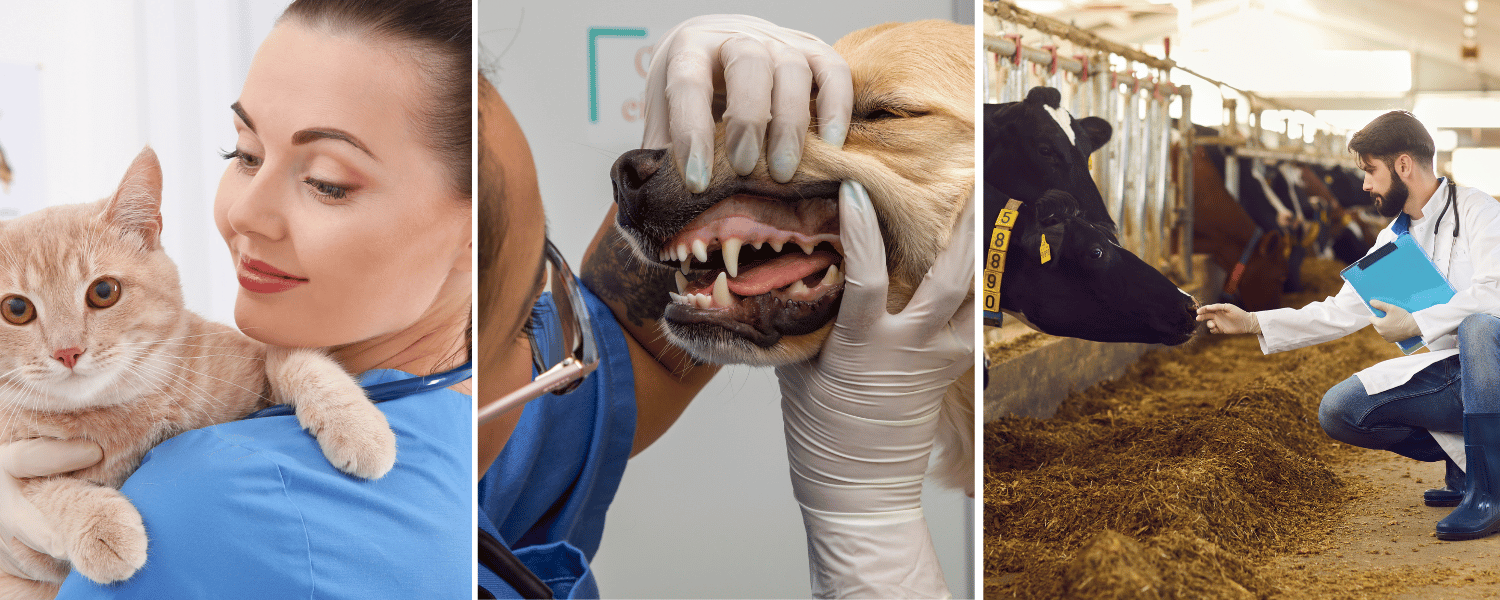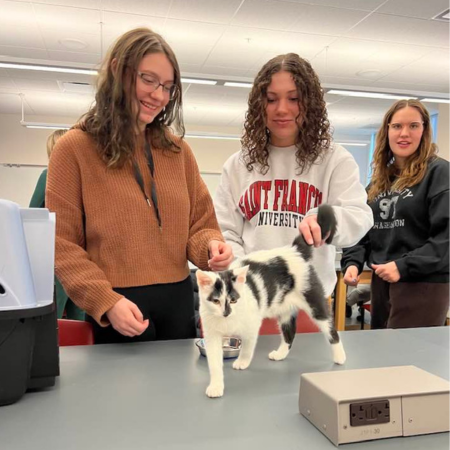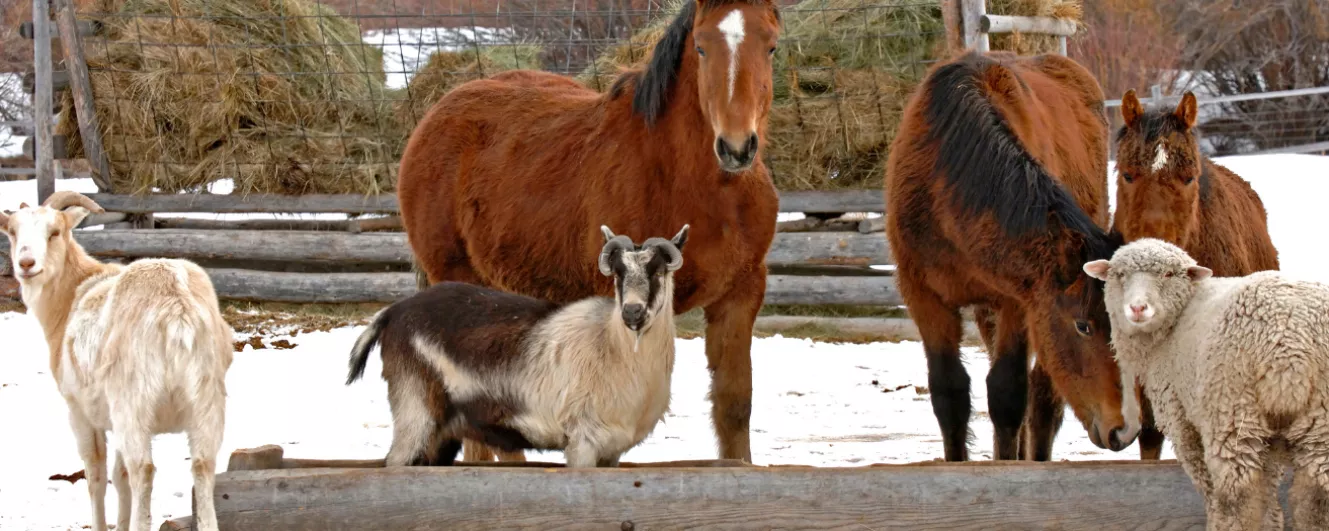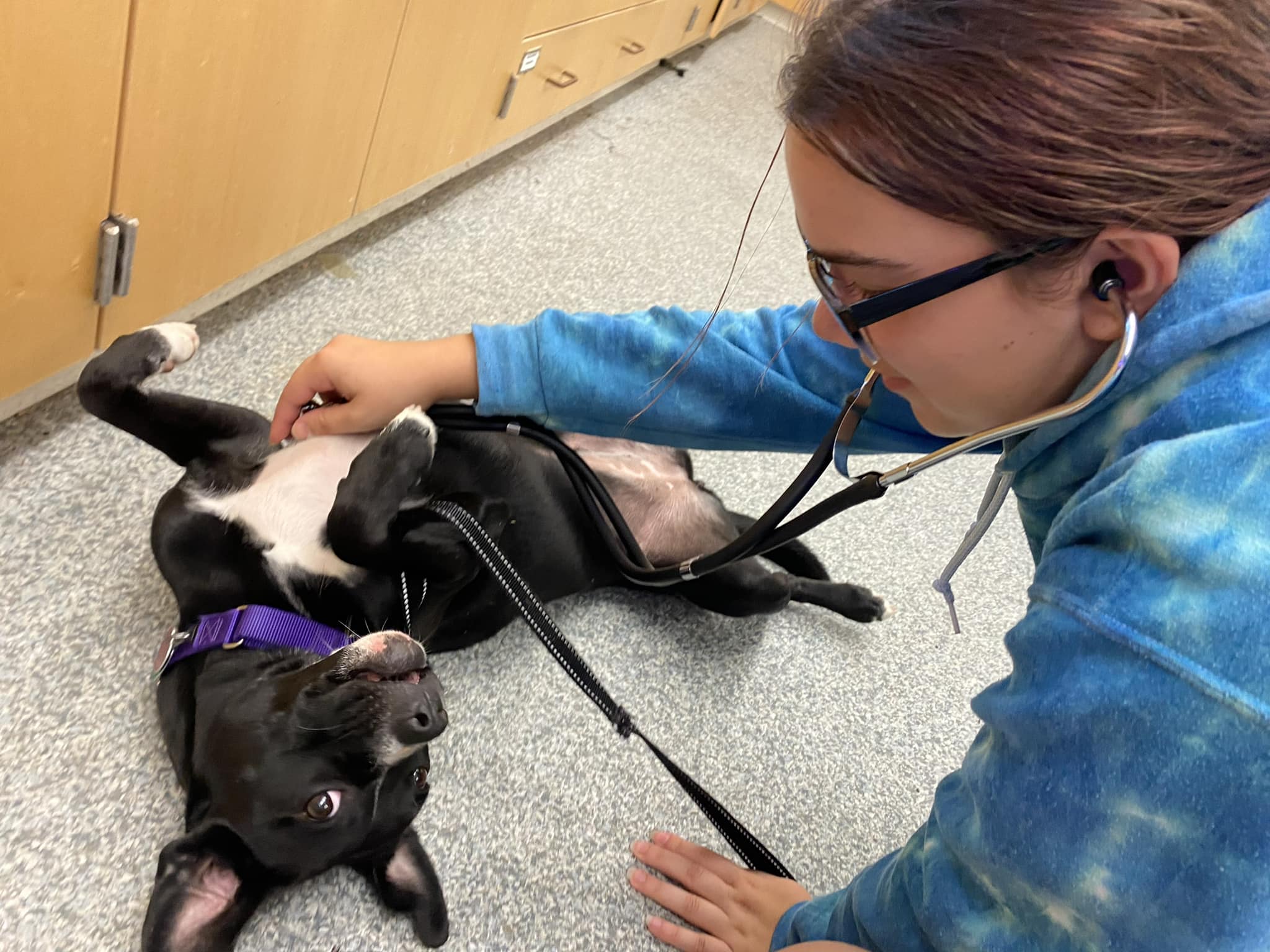
SCHOOL OF STEAM
Pre-Veterinary Concentration, Biology, B.S.
Your Path to Veterinary School Starts at Saint Francis University.

Saint Francis University’s Pre-Veterinary Medicine Concentration within the Biology B.S. program equips future veterinarians with the academic rigor, practical experience, and personalized advising needed to thrive in one of the most competitive graduate school admissions processes in the country.
From day one, you’ll study alongside faculty experts through classroom theory and animal-focused learning, where you will gain valuable research, shadowing, and internship experience to get you ready for your future goals.
Program Highlights
- Competitive Edge for Vet School: Curriculum tailored to meet admission requirements for veterinary schools nationwide.
- Unique Animal Training Experience: Apply behavioral science principles by working in the classroom with foster cats from the local humane society in PSYC 303: Learning.
- Undergraduate Research Opportunities: Participate in small-group projects through BIOL 383: Biology Research Methods, with options for paid summer research positions.
- Clinical Experience Opportunities: While clinical placements are not guaranteed, students are supported in seeking internships and shadowing opportunities with local veterinarians and farms.
- Personalized Advising: Receive four years of one-on-one mentorship from a dedicated Pre-Veterinary faculty advisor.

Discover Where Veterinary Science Can Take You
Veterinarians play a crucial role in safeguarding the health and well-being of animals, humans, and the environment. They work in settings ranging from small animal clinics and large animal farms to wildlife conservation and public health.
Did You Know?
- Veterinarians do much more than treat pets—they care for wildlife, farm animals, zoo animals, and even marine life.
- A DVM degree can lead to careers in public health, biomedical research, food safety, and environmental conservation.
- Some veterinarians specialize in exotic animals, equine medicine, or even space biology (yes—NASA has veterinarians!)
- The U.S. has only about 30 accredited veterinary schools, making pre-vet preparation crucial for admission.
- Demand for veterinarians is expected to grow much faster than average in the coming decade, especially in rural areas and specialized fields.
- Veterinarians play a key role in preventing zoonotic diseases—illnesses that can pass between animals and humans.
No matter where your passion lies in the world of animal health, you can find your path at SFU. Our Pre-Veterinary Concentration in the Biology program combines rigorous science coursework, hands-on animal experiences, and dedicated faculty mentorship to help you prepare for veterinary school and discover your unique place in this diverse and rewarding profession.
Curriculum
Experience a well-rounded education in pre-veterinary medicine!

The Biology, B.S., Pre-Veterinary Medicine Concentration program is built around the entrance requirements for veterinary programs nationwide. Students combine rigorous training in vertebrate anatomy and physiology with advanced study in microbiology and genetics. Students may use their biology electives to earn specialized training in animal nutrition, cell and molecular biology, or take a deeper dive into animal physiology. Includes specialized advising to help students navigate the highly competitive landscape of veterinary medicine programs.
- Degree awarded: Biology, B.S. Pre-Veterinary Medicine Concentration
- Course Descriptions: Course Catalog - 25/26
Student Learning Outcomes
- Employ the scientific method, including the use of discipline-specific techniques, to discover and validate biological knowledge.
- Demonstrate scientific literacy through reading, writing, presenting, and discussing research.
- Demonstrate knowledge of how atoms and molecules interact to permit the function of living systems, and how cells sense, control, and respond to stimuli in their environments.
- Demonstrate knowledge of molecular genetics and how this leads to the expression and inheritance of traits.
- Explain how organisms reproduce and develop, how their anatomical structure permits function, how they maintain internal conditions, and how they sense and respond to external stimuli, across the full range of biological diversity.
- Describe how evolution by natural selection explains the unity and diversity of life on earth, and articulate how organisms interact at the population, community, and ecosystem levels.
Career Outlook in Veterinary Medicine
Veterinary medicine offers a dynamic, fulfilling career with strong growth and diverse paths. Whether you aim to specialize, run a clinic, protect public health, or conduct research—opportunities are expanding. The U.S. Bureau of Labor Statistics' veterinary career outlook reports that the median annual wage for veterinarians was $125,510 as of May 2024. It also projects a 19% employment growth from 2023 to 2033, with approximately 4,300 job openings per year expected over the decade.
| Career Path | Primary Focus | Typical Work Settings | Required Education / Licensure | Potential Outcomes | Employment Outlook & Growth Rate |
|---|---|---|---|---|---|
| Companion Animal Veterinarian | Diagnosis, treatment, and preventive care for pets | Private clinics, animal hospitals | DVM + state license | Stable employment; opportunities to specialize (surgery, dentistry); median salary ≈ $125k | Very strong demand; ~19% growth projected 2023–2033 driven by rising pet ownership and advanced treatments |
| Food Animal / Livestock Veterinarian | Herd health, disease prevention, food safety | Farms, food production facilities, government agencies | DVM + state license; USDA accreditation helpful | High demand in rural areas; strong public health impact; reliable job security | Persistent rural shortages; strong outlook tied to biosecurity and food safety needs |
| Equine Veterinarian | Horse care, performance optimization, injury treatment | Equine hospitals, racetracks, farms | DVM + state license | Niche market; strong client relationships; possible seasonal income fluctuations | Stable but niche growth; demand linked to equine sports, recreation, and breeding |
| Research Veterinarian | Animal disease studies, pharmaceuticals, public health | Universities, research labs, biotech | DVM; often PhD or specialized training | Contributes to medical advances; grant potential; stable academic or industry roles | Steady demand from innovation, zoonoses research, and drug development |
| Public Health Veterinarian | Zoonotic disease control, outbreak investigation, policy | USDA, CDC, state health departments | DVM; MPH or related training beneficial | Impact on human/animal health policy; strong benefits; typically less clinical stress | High demand for zoonoses expertise; growing role in public health infrastructure |
| Board-Certified Specialist | Advanced expertise (e.g., surgery, oncology, cardiology, anesthesia) | Referral hospitals, universities, specialty practices | DVM + internship/residency + board certification | Higher salaries (often $200k+); professional prestige; concentrated expertise | Fast-growing demand for specialty care as pet owners seek advanced treatments |
| Practice Owner / Manager | Leadership and business operations in veterinary services | Self-owned or corporate clinics | DVM + business/management skills | High earning potential (often $300k+); autonomy; added business risk/responsibility | Solid demand; success varies by location, services mix, and practice management |
Note: Growth figures are U.S. projections; actual outcomes vary by region, specialization, and employer.

Getting Started
Ready to take the next step?
We’re here to help you succeed. Our enrollment team is happy to answer your questions, set up a time to meet with faculty, and walk you through the application & financial aid processes.
Find your Enrollment Advisor
Explore our team directory and the areas/regions they serve. When you're ready, connect with your enrollment advisor by phone, email, or text.
Schedule your personal visit today and/or sign up for one of our upcoming events!